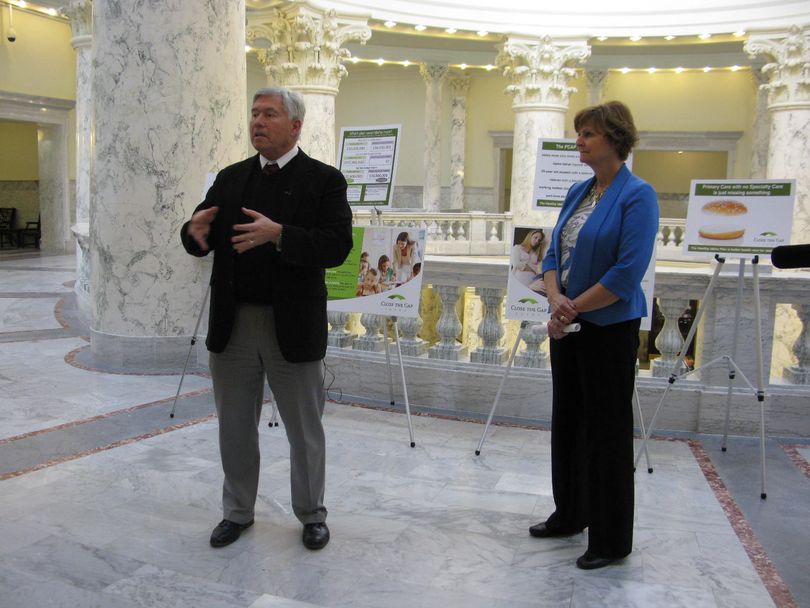Health group on Otter plan: ‘This can’t be the total solution’

A coalition of 120 organizations called “Close the Gap Idaho” held a press conference in the 4th floor rotunda of the Capitol this afternoon to say Gov. Butch Otter’s $30 million health care plan won’t close Idaho’s health coverage gap. “This can’t be the total solution,” said Dr. Ted Epperly, CEO of the Family Medicine Residency of Idaho. “I applaud the governor for his initial efforts to help the gap population, but we must still close our health coverage gap through implementing the Healthy Idaho Plan.” That’s the Medicaid expansion plan recommended by the governor’s Medicaid redesign task force, which would, in part, use federal expansion funds to purchase private insurance for people in the gap population.
Neva Santos, executive director of the Idaho Academy of Family Physicians, said, “It’s critical to understand that the proposed Primary Care Access Program is not health insurance coverage. Additional access to primary care for those in the gap is a good idea, but the solution to this health care dilemma is to implement full coverage through the Healthy Idaho Plan.”
Otter’s plan would allow the 78,000 Idahoans who fall into the coverage gap – they make too much to qualify for Medicaid, but not enough to qualify for subsidized health plans through the state’s insurance exchange – to receive limited primary and preventive care through a nearby community health center, get help managing chronic illnesses, and pay fees on a sliding scale. It wouldn’t cover hospitalization, emergency room care or specialty care, including the specialists that patients who suffer from serious illnesses need to see after they’re diagnosed.
“The governor is absolutely correct that primary care and the patient-centered medical home are key pieces of health care delivery,” Epperly said. “But it is essential that everyone understands PCAP would be limited to just primary care and preventative care, with basic lab, x-ray, pharmacy and limited office based behavioral health services, depending on availability at a given clinic.” Once a patient who comes to a clinic is diagnosed with a serious illness, he said, such as leukemia, the plan wouldn’t cover the services of an oncologist, for example.
The group, whose members range from the Idaho Hospital Association and Idaho Medical Association to Catholic Charities of Idaho, has more info at its website here.
